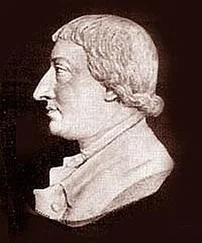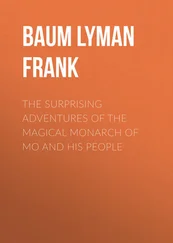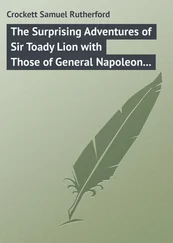Rudolf Raspe - The Surprising Adventures of Baron Munchausen
Здесь есть возможность читать онлайн «Rudolf Raspe - The Surprising Adventures of Baron Munchausen» — ознакомительный отрывок электронной книги совершенно бесплатно, а после прочтения отрывка купить полную версию. В некоторых случаях можно слушать аудио, скачать через торрент в формате fb2 и присутствует краткое содержание. Год выпуска: 2006, Жанр: Юмористическая проза, на английском языке. Описание произведения, (предисловие) а так же отзывы посетителей доступны на портале библиотеки ЛибКат.
- Название:The Surprising Adventures of Baron Munchausen
- Автор:
- Жанр:
- Год:2006
- ISBN:нет данных
- Рейтинг книги:3 / 5. Голосов: 2
-
Избранное:Добавить в избранное
- Отзывы:
-
Ваша оценка:
- 60
- 1
- 2
- 3
- 4
- 5
The Surprising Adventures of Baron Munchausen: краткое содержание, описание и аннотация
Предлагаем к чтению аннотацию, описание, краткое содержание или предисловие (зависит от того, что написал сам автор книги «The Surprising Adventures of Baron Munchausen»). Если вы не нашли необходимую информацию о книге — напишите в комментариях, мы постараемся отыскать её.
The Surprising Adventures of Baron Munchausen — читать онлайн ознакомительный отрывок
Ниже представлен текст книги, разбитый по страницам. Система сохранения места последней прочитанной страницы, позволяет с удобством читать онлайн бесплатно книгу «The Surprising Adventures of Baron Munchausen», без необходимости каждый раз заново искать на чём Вы остановились. Поставьте закладку, и сможете в любой момент перейти на страницу, на которой закончили чтение.
Интервал:
Закладка:
To humorous waifs of this description, without fixed origin or birthplace, did Raspe give a classical setting amongst embroidered versions of the baron's sporting jokes. The unscrupulous manner in which he affixed Munchausen's own name to the completed jeu d'esprit is, ethically speaking, the least pardonable of his crimes; for when Raspe's little book was first transformed and enlarged, and then translated into German, the genial old baron found himself the victim of an unmerciful caricature, and without a rag of concealment. It is consequently not surprising to hear that he became soured and reticent before his death at Bodenwerder in 1797.
Strangers had already begun to come down to the place in the hope of getting a glimpse of the eccentric nobleman, and foolish stories were told of his thundering out his lies with apoplectic visage, his eyes starting out of his head, and perspiration beading his forehead. The fountain of his reminiscences was in reality quite dried up, and it must be admitted that this excellent old man had only too good reason to consider himself an injured person.
In this way, then, came to be written the first delightful chapters of Baron Munchausen's "Narrative of his Travels and Campaigns in Russia." It was not primarily intended as a satire, nor was it specially designed to take of the extravagant flights of contemporary travellers. It was rather a literary frivolity, thrown off at one effort by a tatterdemalion genius in sore need of a few guineas.
The remainder of the book is a melancholy example of the fallacy of enlargements and of sequels. Neither Raspe nor the baron can be seriously held responsible for a single word of it. It must have been written by a bookseller's hack, whom it is now quite impossible to identify, but who was evidently of native origin; and the book is a characteristically English product, full of personal and political satire, with just a twang of edification. The first continuation (chapters one and seven, to twenty, inclusive), which was supplied with the third edition, is merely a modern rechauffé , with "up to date" allusions, of Lucian's Vera Historia . Prototypes of the majority of the stories may either be found in Lucian or in the twenty volumes of Voyages Imaginaires , published at Paris in 1787. In case, however, any reader should be sceptical as to the accuracy of this statement he will have no very great difficulty in supposing, as Dr. Johnson supposed of Ossian, that anybody could write a great amount of such stuff if he would only consent to abandon his mind to the task.
With the supplementary chapters commence topical allusions to the recently issued memoirs of Baron de Tott, an enterprising Frenchman who had served the Great Turk against the Russians in the Crimea (an English translation of his book had appeared in 1785). The satire upon this gallant soldier's veracity appears to be quite undeserved, though one can hardly read portions of his adventures without being forcibly reminded of the Baron's laconic style. It is needless to add that the amazing account of De Tott's origin is grossly libellous. The amount of public interest excited by the æronautical exploits of Montgolfier and Blanchard was also playfully satirised. Their first imitator in England, Vincenzo Lunardi, had made a successful ascent from Moorfields as recently as 1784, while in the following year Blanchard crossed the channel in a balloon and earned the sobriquet Don Quixote de la Manche . His grotesque appropriation of the motto " Sic itur ad astra " made him, at least, a fit object for Munchausen's gibes. In the Baron's visit to Gibraltar we have evidence that the anonymous writer, in common with the rest of the reading public, had been studying John Drinkwater's "History of the Siege of Gibraltar" (completed in 1783), which had with extreme rapidity established its reputation as a military classic. Similarly, in the Polar adventures, the "Voyage towards the North Pole," 1774, of Constantine John Phipps, afterwards Lord Mulgrave, is gently ridiculed, and so also some incidents from Patrick Brydone's "Tour through Sicily and Malta" (1773), are, for no obvious reason, contemptuously dragged in. The exploitation of absurd and libellous chap-book lives of Pope Clement XIV., the famous Ganganelli, can only be described as a low bid for vulgar applause. A French translation of Baron Friedrich von Trenck's celebrated Memoirs appeared at Metz in 1787, and it would certainly seem that in overlooking them the compiler of Munchausen was guilty of a grave omission. He may, however, have regarded Trenck's adventures less as material for ridicule than as a series of hâbleries which threatened to rival his own.
The Seventh Edition, published in 1793, with the supplement (pp. 142- 161), was, with the abominable proclivity to edification which marked the publisher of the period (that of "Goody Two-Shoes" and "Sandford and Merton"), styled "Gulliver Reviv'd: or the Vice of Lying Properly Exposed ." The previous year had witnessed the first appearance of the sequel, of which the full title has already been given, "with twenty capital copperplates, including the baron's portrait." The merit of Munchausen as a mouthpiece for ridiculing traveller's tall-talk, or indeed anything that shocked the incredulity of the age, was by this time widely recognised. And hence with some little ingenuity the popular character was pressed into the service of the vulgar clamour against James Bruce, whose "Travels to Discover the Sources of the Nile" had appeared in 1790. In particular Bruce's description of the Abyssinian custom of feeding upon "live bulls and kava" provoked a chorus of incredulity. The traveller was ridiculed upon the stage as Macfable, and in a cloud of ephemeral productions; nor is the following allusion in Peter Pindar obscure:—
"Nor have I been where men (what loss alas!)
Kill half a cow, then send the rest to grass."
The way in which Bruce resented the popular scepticism is illustrated by the following anecdote told by Sir Francis Head, his biographer. A gentleman once observed, at a country house where Bruce was staying, that it was not possible that the natives of Abyssinia could eat raw meat! "Bruce said not a word, but leaving the room, shortly returned from the kitchen with a piece of raw beef-steak, peppered and salted in the Abyssinian fashion. 'You will eat that, sir, or fight me,' he said. When the gentleman had eaten up the raw flesh (most willingly would he have eaten his words instead), Bruce calmly observed, 'Now, sir, you will never again say it is impossible .'" In reality, Bruce seems to have been treated with much the same injustice as Herodotus. The truth of the bulk of his narrative has been fully established, although a passion for the picturesque may certainly have led him to embellish many of the minor particulars. And it must be remembered, that his book was not dictated until twelve years after the events narrated.
Apart from Bruce, however, the sequel, like the previous continuation, contains a great variety of political, literary, and other allusions of the most purely topical character—Dr. Johnson's Tour in the Hebrides, Mr. Pitt, Burke's famous pamphlet upon the French Revolution, Captain Cook, Tippoo Sahib (who had been brought to bay by Lord Cornwallis between 1790 and 1792). The revolutionary pandemonium in Paris, and the royal flight to Varennes in June 1791, and the loss of the "Royal George" in 1782, all form the subjects of quizzical comments, and there are many other allusions the interest of which is quite as ephemeral as those of a Drury Lane pantomime or a Gaiety Burlesque.
Nevertheless the accretions have proved powerless to spoil "Munchausen." The nucleus supplied by Raspe was instinct with so much energy that it has succeeded in vitalising the whole mass of extraneous extravagance.
Читать дальшеИнтервал:
Закладка:
Похожие книги на «The Surprising Adventures of Baron Munchausen»
Представляем Вашему вниманию похожие книги на «The Surprising Adventures of Baron Munchausen» списком для выбора. Мы отобрали схожую по названию и смыслу литературу в надежде предоставить читателям больше вариантов отыскать новые, интересные, ещё непрочитанные произведения.
Обсуждение, отзывы о книге «The Surprising Adventures of Baron Munchausen» и просто собственные мнения читателей. Оставьте ваши комментарии, напишите, что Вы думаете о произведении, его смысле или главных героях. Укажите что конкретно понравилось, а что нет, и почему Вы так считаете.












